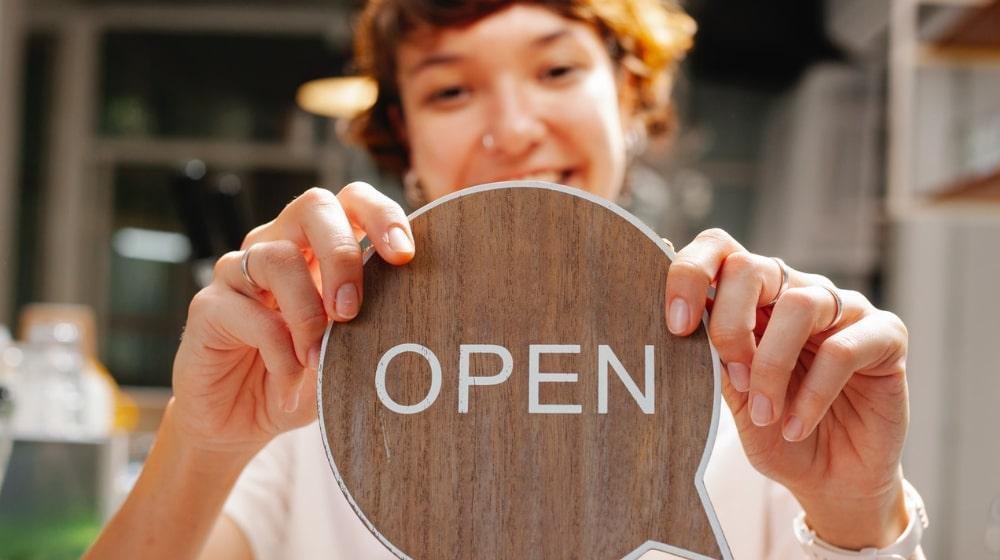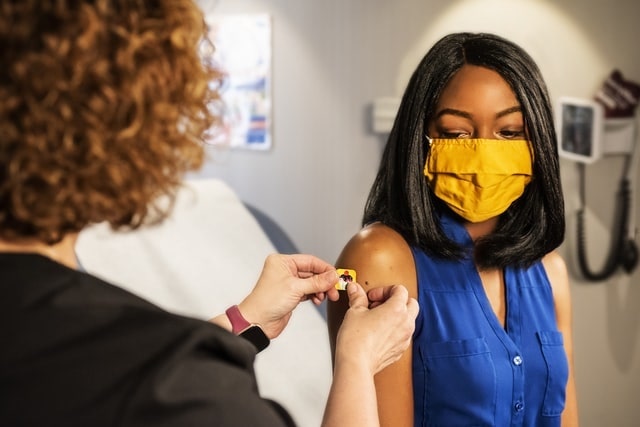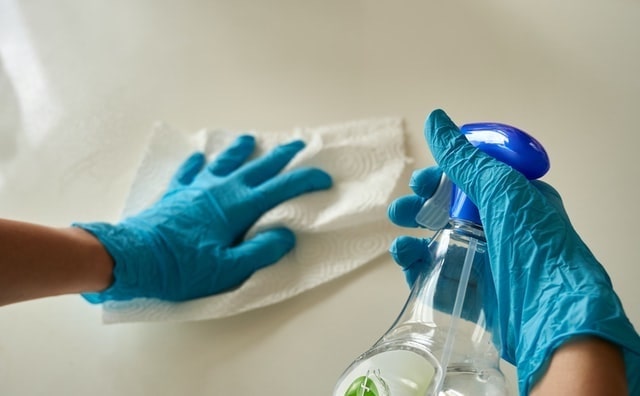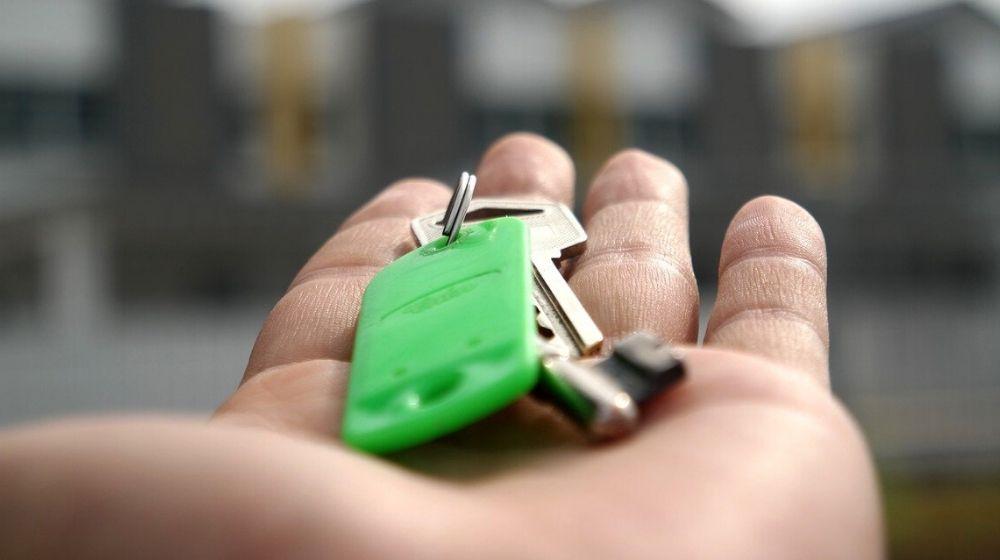As more states and territories approach the country’s vaccination thresholds, small businesses are preparing to reopen, or welcome back seated customers for the first time in months for some areas. Here’s all you need to prepare for a successful reopening.
- National Plan for reopening
- Current restrictions
- Financial help for small business
- COVID-safe guidelines
National plan for reopening
The Australian vaccination targets in the National Plan were agreed to by all the States and Territories on 6 August 2021.
Find vaccination information here.
We are now in Phase A of the plan, which includes an accelerated vaccination schedule, closed international borders and short lockdowns when needed to control spread. Here’s what to expect as we cross vaccination thresholds:
1. 70% vaccination
This is Phase B of the government’s National Plan. Once 70% of adults aged 16+ are fully vaccinated, the state or territory may see:
- Eased restrictions on vaccinated residents
- Inbound passenger caps restored to previous levels (higher caps for vaccinated returning travellers)
- Low-level restrictions, as well as lockdowns
- New reduced quarantine arrangements for vaccinated residents
2. 80% vaccination
Phase C of the National Plan, triggered when 80% of the 16+ adult population is fully vaccinated, may include:
- Highly targeted lockdowns only
- Ongoing vaccine booster programme
- Relaxing of all domestic restrictions for vaccinated residents
- No caps on vaccinated returning residents
- No restrictions on outbound travel for vaccinated Australians
3. Post-vaccination management phase
This is Phase D and marks the stage when COVID-19 is treated as any other infectious disease. At this stage, you may see:
- International borders open
- Case minimisation without restrictions or lockdowns
- Boosters as needed
- No caps/quarantine on incoming people who are vaccinated
The Australian Government website is a reliable source of information and resources for businesses at every stage of reopening.
Current restrictions

COVID-19 business restrictions are administered by your state or territory. Since these may change rapidly, refer to the sources below for the current COVID-19 restrictions in your area:
Related: How to update your business hours on Google, Yelp and Facebook
Financial help for small business
Let’s start with the benefits available to business owners in all Australian states and territories.
JobMaker Hiring Credit
Any business or not-for-profit that hires workers 16 to 35 years of age may receive up to $200 per week per employee for a year. Program ends 6 October 2022. Details
$150,000 instant asset write off

Any business with an aggregated turnover of less than $500 million can write off assets purchased for up to $150,000 in the first year. Details
Recovery loan for small and medium businesses
Businesses (including self employed and not-for-profit) with up to $250 million in turnover may apply for loans up to $5 million. This program closes 31 December 2021. Details
COVID-19 support for Indigenous businesses
The Indigenous Business Relief Package provides working capital of up to $200,000 via a loan/grant package.
International freight assistance
Businesses that trade internationally can get help getting their products on flights and to international customers quickly. The goal of this temporary measure is to help restore critical global supply chains impacted by COVID-19 . Find FAQs and next steps here.
See the complete list of national COVID-19 financial help here.
NSW
Businesses in New South Wales have added financial help to choose from as the state starts to reopen. The easiest way to quickly find a list of the current programs you qualify for is by visiting Service NSW COVID-19 Assistance Finder.
Export assistance grant
The supply chain has been hard-hit by the reduction in transportation options for exporters. This program is for any business that has suffered as a result of COVID-19, bushfires and drought.
If your business is currently/was previously exporting, you could be reimbursed for 50% of eligible expenses up to a maximum of $10,000. Funding is available for activities including:
- Market research
- Participation in international trade shows and trade missions
- Inbound business support
- ecommerce development
- Marketing materials
This grant covers expenses paid since 1 January 2020. This program closes 31 December 2021 or when the allocated funding is gone. Apply
COVID-19 tech vouchers
If you’re developing a product or service that solves a disruption caused by the pandemic, this program could fund a partnership between your business and a Publicly Funded Research Organisation. Perfect for tech startups, and small or medium enterprises. Details
Related: What is a minimum viable product?
Jobs plus program This program is open to both Australian and international firms looking to start or expand their operations in NSW. To qualify you must:
- Currently employ at least 20 workers (the threshold is 80 workers for overseas businesses)
- Be able to create at least 30 new full-time jobs in NSW by 30 June 2024.
Small and medium enterprise (SME) loan guarantee
This scheme guarantees 80% of the value of eligible business loans to SMEs affected by COVID-19. Loans must be approved by 31 December 2021. Details
Accommodation support grant
If your accommodation business suffered cancellations between 25 June 2021 and 11 July 2021, you could receive a grant of either $2,000 or $5,000. Applications close on 30 November 2021. Apply
Rebates on government fees
The NSW Government is offering a $1,500 rebate to help pay for government fees charged to small businesses, sole traders and not for profit groups. This rebate ends 30 June 2022. Apply
Sydney Stay & Rediscover vouchers

Accommodation providers in the City of Sydney local government area can apply to become approved Stay & Rediscover businesses. This allows you to accept any of the 200,000 vouchers the government is distributing to NSW residents. Register online
There are similar programs for Dine & Discover NSW vouchers and Sydney CBD Friday vouchers. COVID-safe dining and entertainment businesses in the 2000 postcode will be able to register for the Sydney CBD Friday program in late 2021.
Victoria
In addition to the funding programs offered through the federal government listed above, entrepreneurs in Victoria may also apply for any of these:
Business Costs Assistance Program (Round five)
This ongoing program is open to businesses that received support in Round Two and Round Two/July Extension. Depending on your status, you could receive weekly payments of:
- $1000 (non-employing businesses)
- $2800 (businesses with an annual payroll of less than $650,000)
- $5600 (businesses with an annual payroll of $650,000 - $3 million)
- $8400 (businesses with an annual payroll of less than $3 - $10 million)
Payment will be made automatically on a fortnightly basis; there’s no need to apply for them since you’re a previous recipient. FAQs
Commonwealth COVID-19 Disaster Payment
Workers, sole businesses and sole traders who have lost income due to the lockdown can apply for payments of $200, $450 or $750 per payment period. Apply through Services Australia.
Small business digital adaptation program
The Victorian Government has partnered with digital providers to help small businesses:
- Build or improve a website
- Improve their cash flow
- Promote their goods or services online
- Manage jobs and projects
- Track their stock
If accepted, you’ll receive a $1200 rebate. This program closes on 5 December 2021. FAQs
Commercial tenant relief
If you’re struggling to pay rent on commercial space, you could get help mediating an agreement with your landlord. You must have an annual turnover of less than $50 million and be able to prove a loss of at least 30% due to COVID-19. This offer ends on 15 January 2022.
You can find the full list of small business funding support offered by the Victorian Government here.
ACT
Although the application window for COVID-19 Business Support Grants has closed*, there is still help available to ACT businesses:

Commercial tenant support
The ACT government has temporary measures in place to help business tenants, commercial landlords and owner-operators of commercial properties who have been affected by COVID-19. Details
Food business fees waived
In order to help this hard-hit sector, ACT is waiving:
- Food business registration fees through 31 March 2022
- Outdoor dining permits through 30 June 2022
The annual licence fees for some nightclubs, restaurants and cafés, clubs, bars and caterers has been cut in half through 31 March 2022 (includes general and special licences). You do not need to contact the ACT Government for these waivers — they will be applied automatically.
Micro-producer application fee reduced 90%
Savings apply to the first year of your off licence if you expect to produce and sell up to $100,000 of liquor on your licenced premises. Available to first-time licencees who sell only the liquor they make on-site.
Apply on the Access Canberra website.
Payroll tax exemptions
Any wages you paid to new apprentices or trainees hired after 1 August 2020 are exempt from payroll tax through 30 June 2022. Details
*Businesses that have previously applied for a COVID-19 Business Support Grant will automatically receive the extension payment if eligible.
COVID-safe guidelines
Public health directives vary from state to state and territory to territory. If you own a business, it’s your responsibility to know the rules that apply to your workplace.
You must do all you reasonably can to meet your work health and safety duties and limit COVID-19 spread.
Safework Australia provides handy links to public health orders for each state and territory here.
NSW
As of 18 October 2021, fully vaccinated residents of NSW may re-enter businesses that are open.
While businesses such as supermarkets and chemists may admit people who are not fully vaccinated, most others must make an effort to admit fully vaccinated people only. These efforts include:
- Clearly displaying the vaccination rule from NSW Health (get posters and QR code check-ins here)
- Ask to see vaccination evidence prior to entering (children under 16 must be able to provide proof of their name and address)
Vaccination evidence may be in the form of an online immunisation history, COVID-19 digital certificate from the Australian Immunisation Register, vaccination status on Service NSW or proof of a medical exemption. If a person cannot prove they’re fully vaccinated, you may ask them to leave. If they refuse, you may notify the police. Details
1. Prepare a COVID-19 safety plan
All businesses are required to have a safety plan and provide a copy of it when asked to an authorised person. You can find a general safety plan and register as a COVID-safe business. Or jump directly to a customisable safety plan for your industry:
Education & information groups
Offices, including call centres
Significant events & related businesses (weddings, funerals etc)
Supermarket distribution centres
Related: 20 ways to update your website when reopening
2. Get your QR safety code
Once you’ve registered as a COVID-safe business (check here), you’re ready to get your QR safety code. This allows you to collect customer details for the purposes of contact tracing without asking the customer to touch anything.
The QR code makes customer record keeping easier for you, as data goes straight to Service NSW.
For customers who don’t have smartphones, simply use the Service NSW business online form to log their details.
3. Make sure your staff meet vaccination requirements
If your business is in Greater Sydney (Central Coast, Blue Mountains, Shellharbour and Wollongong local government areas), employees must be fully vaccinated (two doses) to come to work. If your business is outside Greater Sydney, workers need one dose of the vaccine to report to work.
By 1 November 2021, all employees must be fully vaccinated (two doses) in order to work. Vaccination FAQs
4. Print and display posters
Here you’ll find a wide variety of downloadable and printable posters (some in multiple languages) instructing customers on:
- Proof of vaccination required for entry
- The QR code checkin process
- Required face masks
- Room capacity
- Safe distancing
This site also provides posters you can display to help workers stay healthy and safe.
Editor’s note: No business website? Now is definitely the time to get one. Build it yourself with Website Builder (truly no tech skills needed!) or let the pros at GoDaddy build it for you.
Victoria — now’s the time to prepare
At the time of this writing, Victoria was still in lockdown. Now would be a good time to work on the following steps so your business is ready when the time comes:
1. Prepare a COVIDSafe plan
All Victorian businesses with on-site operations must have a COVIDSafe plan to present during random spot checks. If you already have a COVIDSafe plan, there’s no need to write a new one using the templates linked below. Just know there are hefty fines for not having one at all, ranging from $10,904 to over $21,000.
Although you are not required to use a template for your plan, you can download and fill out one of these COVIDSafe templates in:
Your plan must describe:
- Your efforts to keep COVID-19 out of your workplace
- The kind of face mask or personal protective equipment used by workers
- How you plan to respond to a case of COVID-19 at work
- How you will meet the requirements set out by the Victorian Government
You are expected to update your COVIDSafe plan regularly, especially when restrictions or health advice change.
2. Register your business, venue or vehicle for a free QR Code
Every person who enters your place of business must check in with the touch-free QR code. This enables contact tracers to shut down outbreaks before they get out of hand. All check-in data is housed in secure databases managed by Service Victoria.
Learn how to apply for and display your QR code here.
3. Make sure your workers are ready
From 15 October 2021, no employee, contractor, volunteer or student on placement may report for on-site work unless they meet one of these criteria:
- Received at least the first dose of the COVID-19 vaccine
- A booking to receive their first dose by 22 October 2021
- A medical exemption evidenced by an authorised medical practitioner
From 26 November 2021, all workers must show they’ve had their second dose to work (unless they have a medical exemption). Check the requirements and deadlines for your industry here.
Note: These requirements do not apply to workers in residential aged care, construction, healthcare settings, and workers at school, childcare and early education services.
Stay on top of changing requirements
You don’t want your business to contribute to the spread of COVID-19 — and fines for non-compliance can be hefty. So it would be wise to make it someone’s job (yours or an employee’s) to regularly check restrictions and health advice in your area. Then update your safety plan and workplace routines accordingly. Together, we can beat this virus!










